|
Sunday the 20th had
dawned foggy like the day before. The fog had been hanging around
the lower mainland for several days now, and I thought that I
should stay indoors, especially given that I was sniffling and
had exposed myself to the cold quite a bit the day before.
That thought didn't
last too long; the sky lightened just a little and I found myself
on the way to Blackie Spit. When I got there, it was pretty socked
in, and I only found a few things that I could get close enough
to to take decent photos.
So I contented myself
with some shots of some of the common stuff: sparrows and finches.
It's easy to pass these guys by while in pursuit of more exotic
things, and it was fun to settle down and work on getting photos
of them. Here's my favorite from the day, an adult Golden-crowned
Sparrow whose color came out very nicely saturated.
|
|
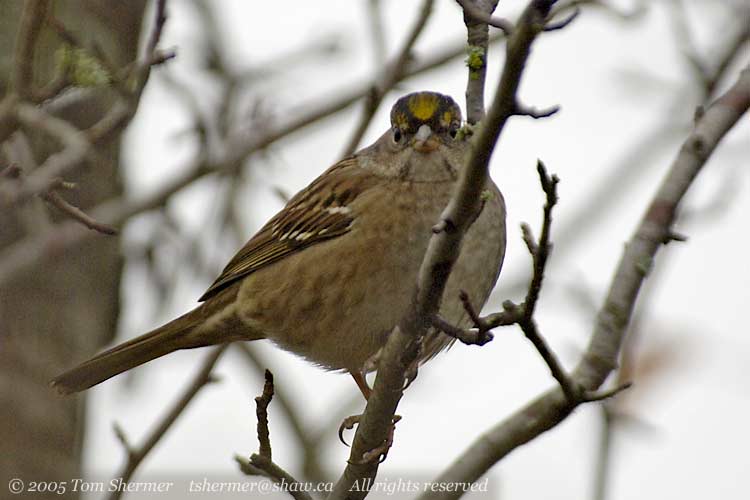 |
| Here's a
Purple Finch that was eating berries in the bushes beside the path. |
|
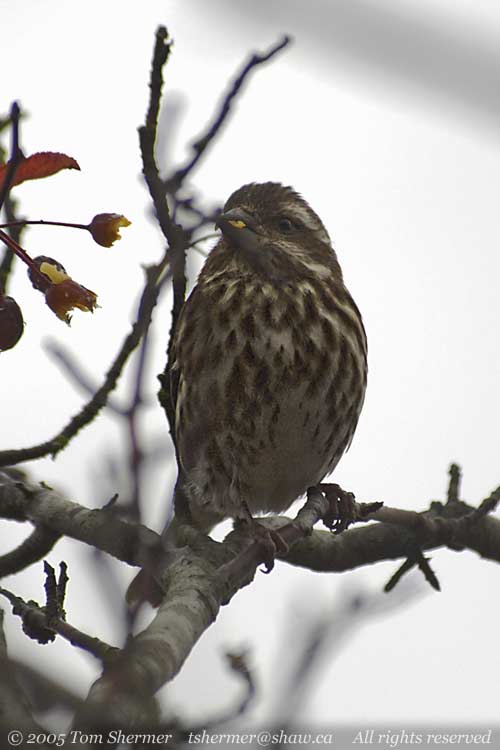 |
|
I wandered around a
little and eventually found a small grassy area surrounded by
bushes a little off of a main path. When I had arrived, a few
sparrows were feeding on the grass and in the bushes; they scrammed
further into the bushes when they saw me.
I sat down on the grass
to wait and see if they would get accustomed to my presence and
come back out of hiding. It took only a few minutes and they were
back out foraging. I sat and took photos for about ten to fifteen
minutes before moving on.
I'll show you three
of them: this one is a first-winter Golden-crowned.
|
|
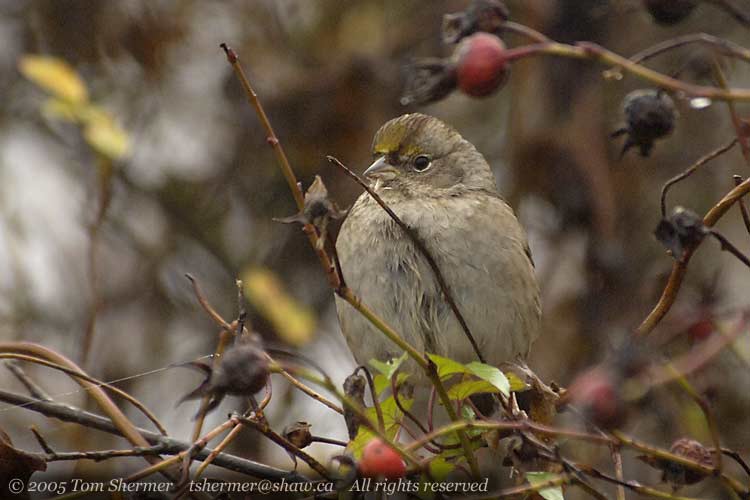 |
| The second
is another Golden-crowned. This one has quite a different look to
him, but is probably also a first-winter bird. |
|
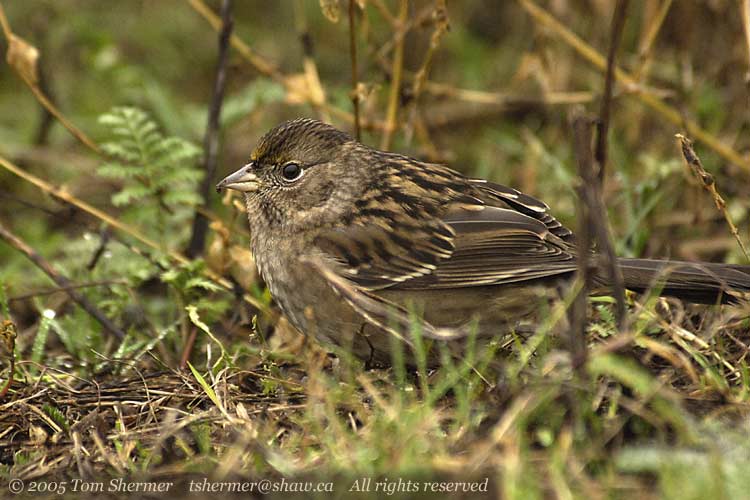 |
| And the
third is a Fox Sparrow. This looks to be a Sooty Fox Sparrow,
the most common type in this area. There are also Slate-colored
Fox Sparrows, Thick-billed Fox Sparrows, and Red Fox Sparrows. Some
folks consider the four types to be separate species, but most books
that I've seen treat them as subspecies. |
|
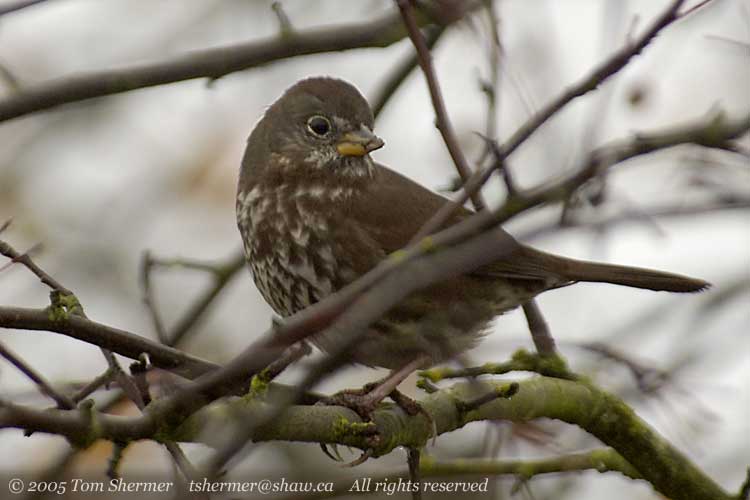 |
| These sparrows
had been fun, but it was damp and the ground was cold, so I thanked
them and moved on. For the rest of my time at the park, I chose
some more distant subjects in order to try to capture the feel of
the fog. |
|
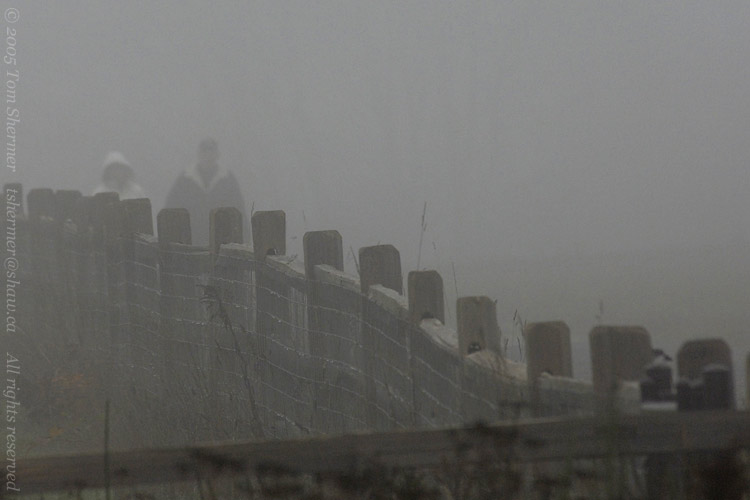 |
| Cormorants
on piles are always fun, and on this day, the fog added to that.
In the two photos that follow, the place where the water rises to
on the piles is in the photo: the piles are blending right in to
their reflections, making them look really long. I really liked
that effect. If you look closely, you can see the ripples on the
water. |
|
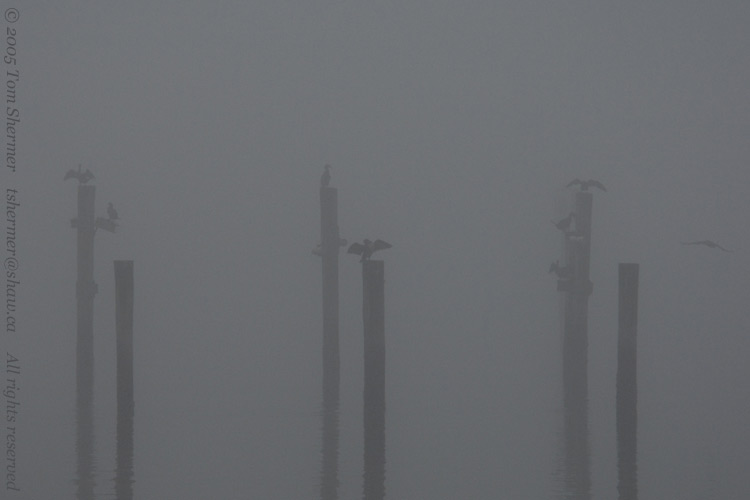 |
| |
|
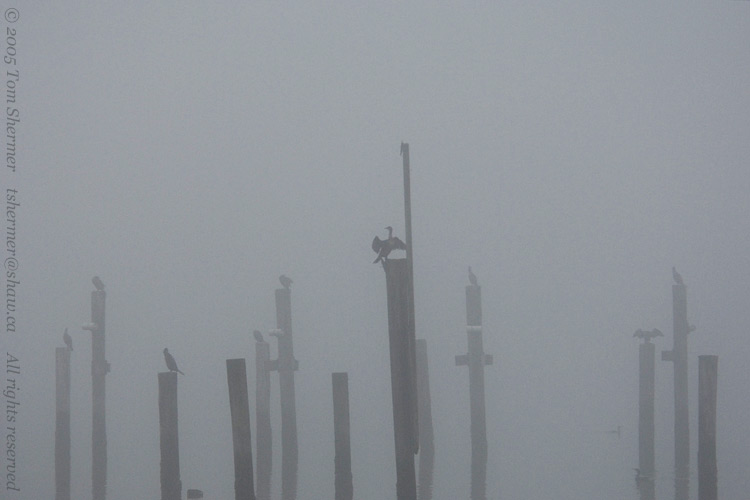 |
| And there's
not much to say about my final photo; it is what it is. |
|
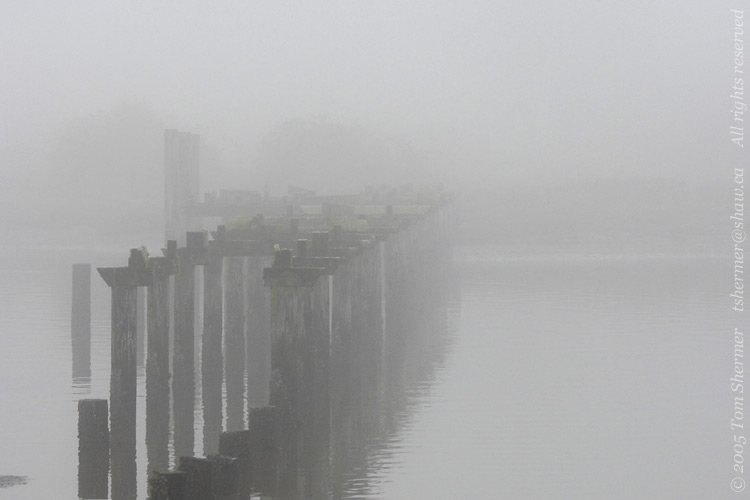 |
|
Fog does interesting
things to light and color and it's always a challenge to try to
use it in photographs. Next time, I'll present some fog shots
that were taken at night.
Sitting
for a spell with sparrows on the spit,
Tom
|
|